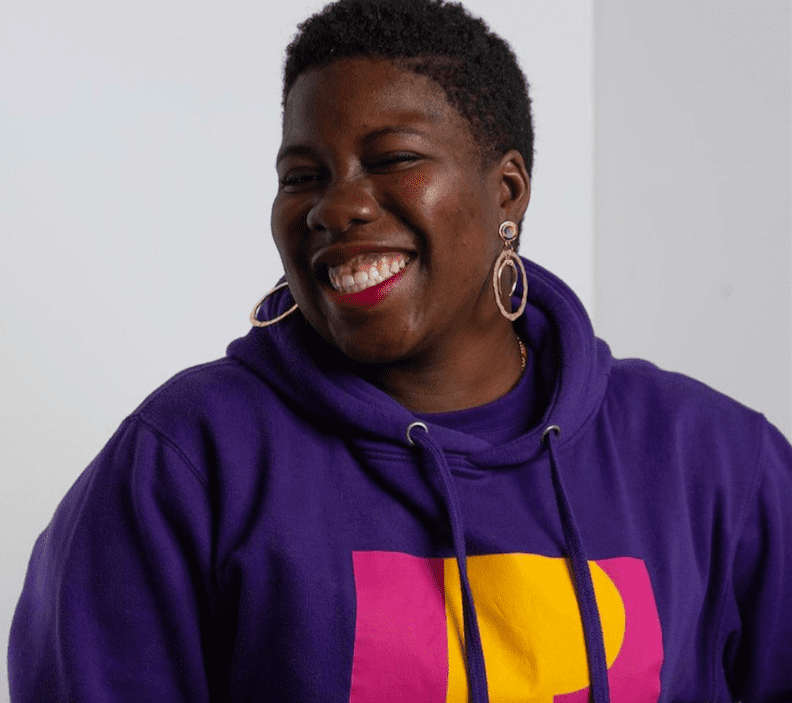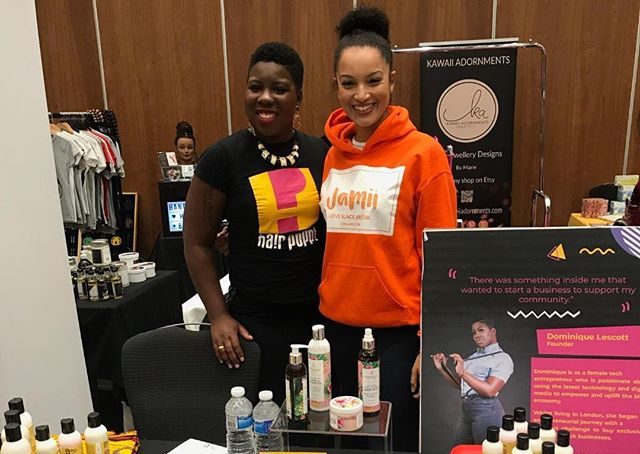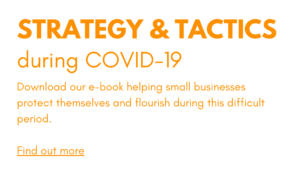Getting Started, Changing Strategy & Standing Out: Interview With Hair Popp
Hair Popp is an online marketplace for UK black-owned independent haircare brands, products and accessories. Founder Dominique Lescott makes it easier and more convenient for people with Afro hair to find great quality products online, also focusing on offline community-building through regular events. We spoke to her as part of our Instagram Live series, whereby we deep-dive into the journeys of our partnered businesses.

What inspired you to get started and what was your first step?
I Iaunched Hair Popp in November 2018 (I could have launched sooner but procrastination and perfectionism took over!). I had come up with the idea of a black-owned hair shop in 2017, and my first step was market research: at the organisation where I worked I was already very active in the black workers group and so I decided to invite them to a session where I could ask them everything about their experiences buying black hair care.
I wanted to know their pain points, what they were looking for out of their haircare, everything. About 40 people showed up, and I expected most people to say that black-owned businesses were expensive – but that didn’t come up. Their main concern was lack of knowledge about what products worked and which were good brands to buy from. They didn’t like the ‘hair shop’ experience of being followed around the store or recommended products by staff who didn’t know anything about black hair. In reality it isn’t about price. Black people do spend money, but they just want help knowing what to buy – just like everyone else.
At the time, I was living and working in London but decided to leave this job to spend some time in St. Kitts & Nevis, where my family is from, to figure out who I was and what I wanted to do.
Why did you decide to make your platform for black-owned brands?
It started in 2016 when an African-American man Alton Sterling was killed by police in the USA. His murder caused protests across the world, including in London, and although I was sick on the day of the protest and couldn’t go, it was at this point that I started to think about what I could do to help my community. I started to reflect on how much of my spending was actually staying within the black community, and I actually went through one of my bank statements and realised that it wasn’t very much at all.
I started to shop black when and wherever possible, and in doing so came across a lot of black women in the UK who had started their own hair care brands, such as Afrocenchix and ROOT2TiP. We tend to think whatever is American is better, but actually EU regulations and standards mean that British haircare is better quality with fewer chemicals. The reality is that US brands tend to have a bigger market spend and so can reach their audiences more easily than Black British businesses.
It’s these Black British businesses that are building communities where women turn not just to talk about hair but also relationships, self-image, and the workplace. I realised that a platform like Hair Popp would be a fantastic way to bring people together and allow us all to work together to help customers buy from people who understand all their needs and experiences. The hair and beauty industry is with £5.25 billion annually and black people make up 80% of the spend, and so it’s shocking there aren’t more black people retailing these products.

What do you say to people who complain that black-owned brands are too expensive?
Black-owned haircare brands often do have a higher price point, but the people behind the products are tremendously knowledgeable about Afro hair and can show you how to look after yours in ways non-black-owned businesses cannot. They spend years researching the best and healthiest formulations [which is important considering countless Afro hair products on the market contain chemicals linked to infertility, fibroids and cancer]. Their products are usually more natural, purer and better quality, which naturally means more expensive.
Black-owned brands actually tend to have less ingredients and more concentrated quantities, actually meaning they will last longer than other products. Therefore they are better value for money and the dividends will pay off on the health of your hair.
You’re based in Birmingham – how does the black-owned business scene differ from London? What’s the sense of community like?
This is a conversation I have quite a lot. I lived in London and because all my family lived in Birmingham, I was very active socially and ended up building a lot of my network in London.
There’s definitely a community in Birmingham but the difference is that people here want something to already exist, whereas people in London will just go ahead and create it themselves. More and more people in Birmingham are creating the events, the spaces and the networks that don’t exist but it has taken time, and I understand why they don’t do it because it’s hard work. But in my experience people are looking for these kinds of opportunities.
For me, it’s about trying to bring that culture of London to Birmingham, even though the numbers are smaller and you can’t hold an event any day of the week like in the capital. There’s a stereotype that you can’t get black people out of the house on Mondays, but I did an event on a Monday in Birmingham and loads of black people showed up, proving there is a demand even if it’s not that visible.
You regularly hold pop-ups with the brands you’re partnered with, as well as hosting a birthday party towards the end of 2019 – how do events usually fit into your strategy? How has it been bringing an online platform to the offline world?
When I launched Hair Popp in Birmingham I asked the audience what they wanted, and they said community – something to bring people together in physical spaces. I started by holding smaller, intimate one-brand pop-ups to give local people a chance to meet them, get their haircare questions answered and buy the products. When something is new that a lot of people haven’t heard of, they’re more likely to buy in person where they can properly engage with the product and the brand.
I remember one lady who would never buy anything from me, but she was a huge Hair Popp ambassador for me, always showing up and sharing things on social media. It’s this sense of community that I love, especially since being a business owner can be isolating. A lot of black-owned businesses in Birmingham don’t take advantage of incubator spaces as they look a lot like the corporate world – very white and middle class – and where there are black people they are in silos. Creating a community of our own has been essential.
Some Birmingham-based haircare brands are IVY WILD, Nylah, jim+henry, Flora & Curl, Bourn Beautiful Naturals and Shemoore.
How is COVID-19 affecting Hair Popp and what have you put in place to protect the business from it? Have you been able to find positives from the situation?
Coronavirus is impacting us quite a bit, because after realising how much people wanted physical events and meet-ups, this year the strategy was about making that experience even better. We had planned to go to Curly Treats in April as last year it was amazing for us in terms of sales, brand awareness and meeting people – some people essentially came in with a shopping list and were just asking us to tell them what products to buy.
For Curly Treats this year we’d been speaking to an architect about how to use the space and make the experience better, and we were going to consider using a photographer and brand ambassadors to really work hard to represent the brands currently on Hair Popp and sign up new ones.
In terms of our marketing, first and foremost we’re being mindful of the situation we’re in, as people are losing jobs and their income and their spending habits will change. But we’re also reminding people that they still need to take care of themselves and their hair. People should still be washing, cleansing and moisturising their hair at home.
What’s the vision for Hair Popp? What’s next?
As part of increasing our digital footprint, we will be working on showing people how to use their hair products from home. It’s really important that the product and service both work for that person, and so it’s not enough to just sell someone a shampoo – they need to know it’s right for them and how to use it. We have some good Instagram Lives coming up so watch this space.
When you shop with a small black-owned business you’re helping them and also their family. That’s how black economics works – if you’re not shopping with each other, how are we going to grow? There’s that proverb, ‘‘if you want to go fast, go alone. If you want to go far, go together’. For Hair Popp, it wasn’t just about our brands being black-owned, but also our web developer, our photographer – how many things can I find in my own community? It’s these people that are more likely to understand the project and become an ambassador for your brand.
What attracted you to working with Jamii?
I love everything about Jamii. It represents every value I personally hold when it comes to supporting UK black-owned businesses. I think it’s really important to have a platform encouraging people to shop black and Jamii does that so well in terms of building the online community, holding events offline and just advocating for the Black British community.
